
Translating winning on the pitch to business success
Rachel Gray is a competitive soul to say the least. So much so, it’s infectious.
I sense a real fire in her belly, an unmistakable ‘can do’ attitude. It’s this competiveness that she’s instilling in her own children right now. It’s fair to say, Rachel is bit of a veteran at Cisco, having worked here for the last 18 years. And it means she’s not short on wisdom. 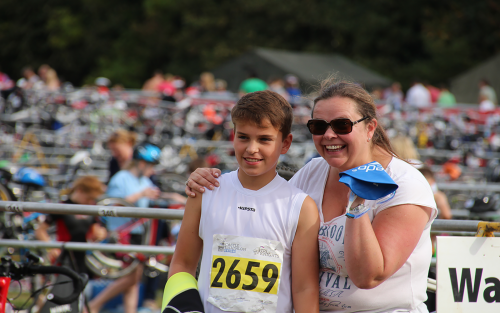
Sport plays a big part in shaping her outlook – and driving this competitive nature both at work and at home.
“Kids can sit in front of the TV, or play on the PlayStation and just go brain dead,” she said. “I love that my three kids can go out and do some physical activity and really enjoy it.
“Although I don’t play sport myself anymore, I’m just living my sporting dreams through my children!”
I’m keen to know how this attitude translates into success in the workplace – does it have an impact, I ask.
“Definitely, I think it’s really important to learn the lessons that when you compete you don’t always win.
“It’s important to understand how to win, while also learning how to reflect on why you lost. It’s about not getting too downtrodden by a defeat, loss or a setback.
“There’s some fantastic research which looked at the correlation between successful women in business, and girls who gave up sport in their teenage years. There is actually a direct link between the two – it found girls who stop playing on the whole are not as successful.
“It’s a real shame because they lose that competitive environment, and you have to learn how to pick yourself up when you have lost. I’m always talking to parents of girls telling them to keep them playing sport – it doesn’t have to be a high competitive level.
“It’s not just about being healthy, it’s important to experience the emotional and psychological benefits of knowing what it’s like to win, while also knowing how to lose with grace.”
There are split allegiances when it comes to the Premier League with Chelsea, Manchester United and Spurs all represented (at supporter level) at the family home in Godalming, Surrey. That’s quite the Saturday afternoon…
It doesn’t stop there. Friday night hockey practise is a ‘regular activity’, and all three of the kids play football on a Saturday and Sunday, as well as mid-week training for the boys.
Her youngest, Annabelle, at the age of 9 is the only girl in a squad of over 30 boys and has recently been invited to join Chelsea FC’s Girls development squad.
The apple doesn’t fall far from the tree they say…
“I think the team dynamic and competitiveness in sport really helps them and sets the pace for adult life,” Rachel enthuses.
“It builds resilience and tenacity – which is important in life or business. I am always learning – I absolutely love that part of my job.”
As well as bringing up the kids (and not to forget mentioning holding down a top level sales job with Cisco) she also finds the time to volunteer at Farncombe Youth Football Club, where all three kids play the beautiful game.
She must be the busiest woman in all of tech!
“As Club Welfare Officer, my primary focus there is making sure kids are safe and happy. I also look out for other issues such as bullying.
“There are around 350 children there aged between 4 and 16, all from very mixed backgrounds. For some of them, football is one of the few times in the week they can relax and be themselves.
“My eldest son was playing at the club. It’s all totally run by volunteers, and I saw they needed a bit of help. I started out doing a bit of the admin – things like booking pitches and referees, and I’ve ended up getting more involved as an officer.”
Although she doesn’t know what the kids will end up doing, she feels really strongly about careers advice given at school.
“It’s really poor. When I was at school it was suggested that I look at becoming an engineer, but the careers advisors couldn’t tell me what the job involved on a day-to-day basis and that didn’t inspire me.
“Kids need a lot more direction, more awareness of what’s available and encouragement that it is within their grasp. This is especially true for girls, who are still not being encouraged to get involved in male-dominated industries.”
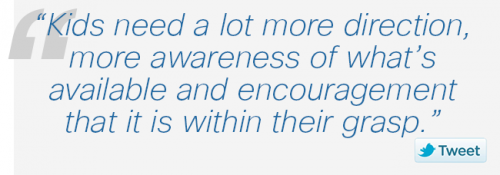 This is an issue Rachel speaks with incredible passion, having been through that very system for the last two decades or so to get to where she is now.
This is an issue Rachel speaks with incredible passion, having been through that very system for the last two decades or so to get to where she is now.
Although the number of women in senior positions and engineering roles has improved, it’s clear there’s still a lot of work to be done. Rachel reflects back to 1997 when she joined Cisco as a channel account manager for BT.
“Cisco was a very different place back then,” she said.
“It was full of men, and I wanted to be as good as them. There was a big ‘work hard, play hard’ mentality. I was one of four women working in Cisco sales – within two weeks two had left. It was a massive test of character!
“Things have changed massively – and all for the better.
“We need to have more women engineers, and get them into STEM topics. At Cisco we’re in the great position to have a cohesive collective of women that encompass a range of ethnicities, sexual orientations and disabilities. It’s great to have that support network there.
“Offering flexibility is essential to attracting and retaining female talent, who have so many conflicting priorities. Cisco is very good at this, which is why it attracts and retains the best talent. Also gives me time for my second job, playing mum’s taxi!”
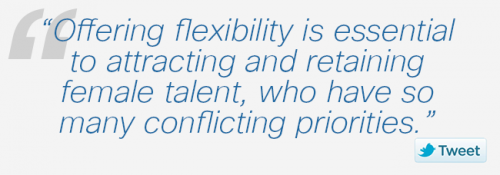 The last remark tied perfectly to my next question. With so many different plates to keep spinning, I’m fascinated to find out how she manages to keep on top of all her priorities in both her personal and professional life.
The last remark tied perfectly to my next question. With so many different plates to keep spinning, I’m fascinated to find out how she manages to keep on top of all her priorities in both her personal and professional life.
The key thing to this is being able properly switch-off and on almost simultaneously between work and home, she says.
“I taught myself over time that when you’re at work, you’re at work. When you’re at home you’re at home. It lets you totally focus.
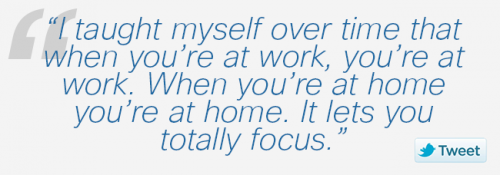 “Yes occasionally you’ll get an email that needs responding to. But it’s about being able to switch-on for that 30 seconds, and then go back to what you’re doing.
“Yes occasionally you’ll get an email that needs responding to. But it’s about being able to switch-on for that 30 seconds, and then go back to what you’re doing.
“In early years when I worked from home the laptop would be on the kitchen table and it was almost like a bit of a reminder. I’m fortunate now to have a home office space, so I can just shut the door and it’s done.”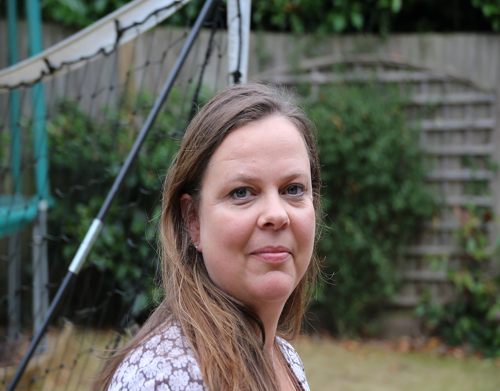
Now that she’s a year and a half in to her role as Sales Director for SP & Media, how did that journey start with Cisco? She gazes back over the best part of two decades.
She tells me in one of the several interviews to join Cisco, she was advised that applicants required four key things: a track record in selling, management experience, technical experience, and they needed to be in their mid-30s. At the time, Rachel had only a couple of years’ professional sales experience, little technical knowledge, no management experience and was mid-20s! However the gauntlet was down and she set about showing how determined she was to succeed.
“I like feeling uncomfortable and being put under pressure.”
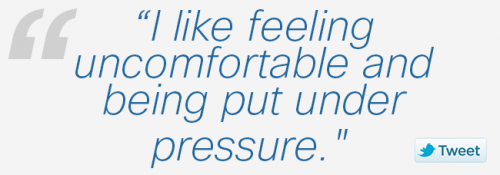 Rachel was the first in her family to attend Oxbridge, something which comes across very humbly as we chat.
Rachel was the first in her family to attend Oxbridge, something which comes across very humbly as we chat.
She left Cambridge University with a degree in Natural Science – quite the transition considering she now works in technology sales. How did this come about?
“I had a fantastic chemistry teacher at school that was really quite inspirational. So I guess I thought I would just carry on doing sciences. I didn’t fancy doing anything vocational like law.”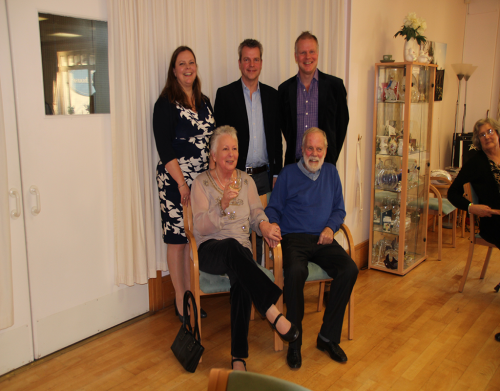
But at the time of leaving university, what she really wanted to do was to make some money. “I had friends in sales who had swish company cars and mobile phones. The priorities of the young mind! It looked like a lot of fun and I wanted to get involved.
“Back then I didn’t have a clue about business, and apart from that group I didn’t know anyone else prior to that who worked in a business role. From a family side both my parents were teachers so I didn’t have any exposure to business.
“I was just really interested in what they were doing.”
While we’re finishing off our chat, and I’m feeling suitably inspired, I ask if she has one piece of career advice that has kept her going.
“To get by, I used to pretend to be like the successful people around me, but as I’ve got older I’ve learnt the importance of being authentic and now that’s what I try to be.”
Like many people I’ve spoken to from Cisco Rachel describes her career as ‘spontaneous’, citing luck as a factor rather than talent or tenacity. “Lots of opportunities have arisen for me, I feel very lucky.” Well with someone like Rachel I personally doubt very much that luck had much to do with it. Her parting line seems far more likely:
“For me it’s about finding inspiration in unlikely places.”
3 Comments

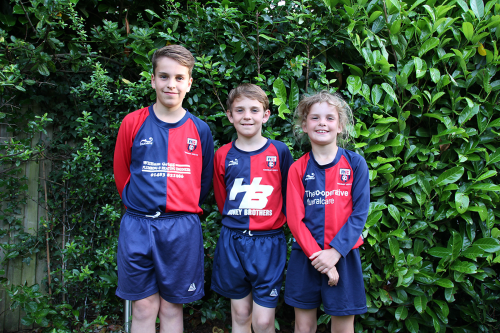

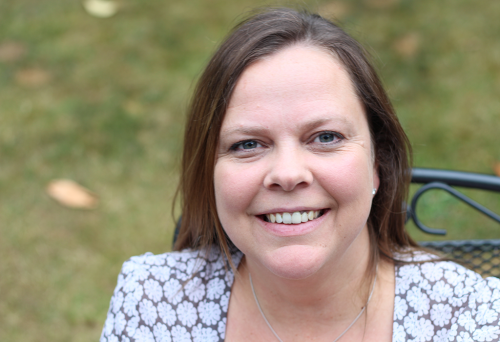




Wow – did not know this had been written – more weapons in your armory than I ever imagined 🙂
Hey Rachel, I read your article and I am also inspired, especially the part when you talked about the sports. Playing sports will teach you put you into the competitive environment and teach you how to win. What a great advise!
Learnt lots about you Rachel – what an inspiring lady !